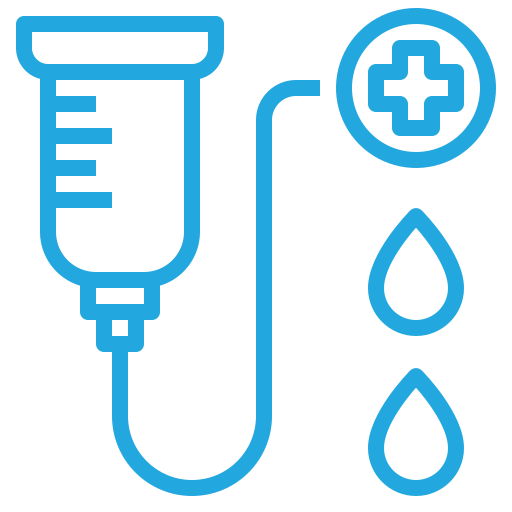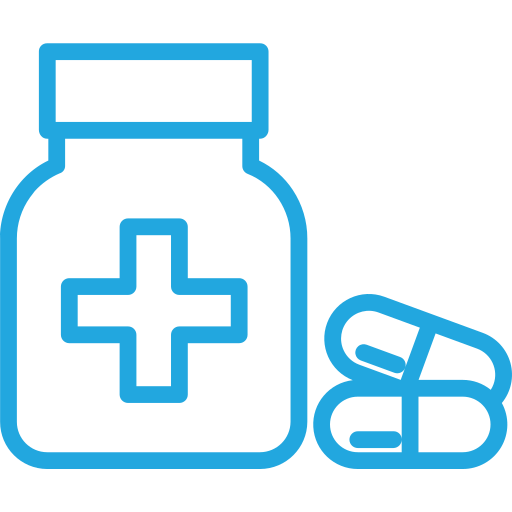Patient Education
We believe that patient education improves a patient’s outlook regarding their treatment. Our goal is to educate and empower you to make informed decisions regarding your own healthcare.
 Physician-Led Patient Education
Physician-Led Patient Education
Our board-certified physicians are here to help answer any questions you may have regarding your diagnosis, staging, treatment decisions, or managing side effects. All of our exam rooms are equipped with an interactive touch screen that you and your physician can use to help explain concepts regarding your diagnosis or treatment plan.
 Chemo Teaching
Chemo Teaching
We understand that you may feel overwhelmed after receiving your diagnosis. It is important that you discuss with your physician your treatment plan options and have ample time and education to make the best decision.
You will be offered a Chemo Teaching session prior to starting treatment. This gives you the opportunity to ask any questions you may have regarding your treatment plan. This consists of a 30-45 minute appointment with your infusion nurse and your physician or mid-level practitioner. You will learn more about your specific diagnosis, the benefits and side effects of your treatment, ways to manage the symptoms of your diagnosis, and ways to manage the side-effects of your treatment.
We know that family is your greatest support system. You may invite one or two family members or your caregiver to your chemo teaching session to ask questions regarding your treatment plan.
 Oral Drug(s) Patient Education
Oral Drug(s) Patient Education
We also provide education on oral oncolytics or “chemo pills” similar to our chemo teachings. We have highly trained nurses and pharmacy technicians who are ready to answer any questions regarding your prescribed medications, chemo pre-medications, or medications you are taking to manage side effects. Remember: We have an on-call nurse and on-call physician available at all times, 24/7 at (478) 272-8266.
 Printed Patient Education
Printed Patient Education
We have a wide variety of free, printed patient education materials available in office through various organizations such as The American Cancer Society and The American Society of Clinical Oncology.
 Group Patient Education
Group Patient Education
Our cancer support group meets on a monthly basis to discuss tips and ways to manage the physical and emotional symptoms of cancer. The cancer support group welcomes outside speakers to come and speak on various topics that relate to our cancer patients, their caregivers, and cancer survivors.
 Advance Care Planning
Advance Care Planning
An Advance Directive is a medical power of attorney. It is a form that you fill out to describe the kinds of medical care you want to have if something happens to you and you cannot speak for yourself. It tells your family and your doctor what to do if you’re badly hurt or have a serious illness that keeps you from saying what you want.
There are two main types of advance directives:
- A living will tells your family and your doctor what kinds of treatment you want to receive as you near the end of your life and if you can no longer speak for yourself. A living will is also called a treatment directive.
- A medical power of attorney lets you name a person to make treatment decisions for you when you cannot speak for yourself. This person is also called a health care agent or health care proxy.
Your medical power of attorney will only be contacted if you cannot make your own treatment decisions. You can change your advance directive at any time.
01. Print the Advance Directive for the State of Georgia . There are other forms similar to this form, such as “Five Wishes” that you can fill out at our office.
02. Choose your healthcare agent. This should be a person that you trust to make decisions for you.
03. Fill out the forms with a witness present.
04. Give copies to your family, doctors, and health care agent
You can change or cancel your advance care directive at any time. Just fill out new forms and get rid of your existing forms. If you change or create new forms, give everyone an updated copy.
It is important to think about the treatments you do not want to have if you become seriously ill. Some examples include:
- Receiving cardiopulmonary resuscitation (CPR) if your heart stops.
- Be on a machine that pumps air into your lungs when you cannot breathe on your own.
- Be on a machine that cleans your blood if your kidneys stop working.
- Be fed fluids through a tube if you cannot drink or eat.
- Take medicine to treat serious infections.
These are tough choices to make, but you do not have to make them alone. Take your time. Share your questions or concerns about what to include in your advance directive with your doctor, nurse, patient navigator, family, or friend.
Please call us at 478-272-8266 if you need help filling out your Advance Directive.
